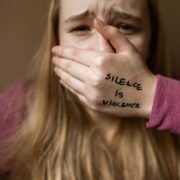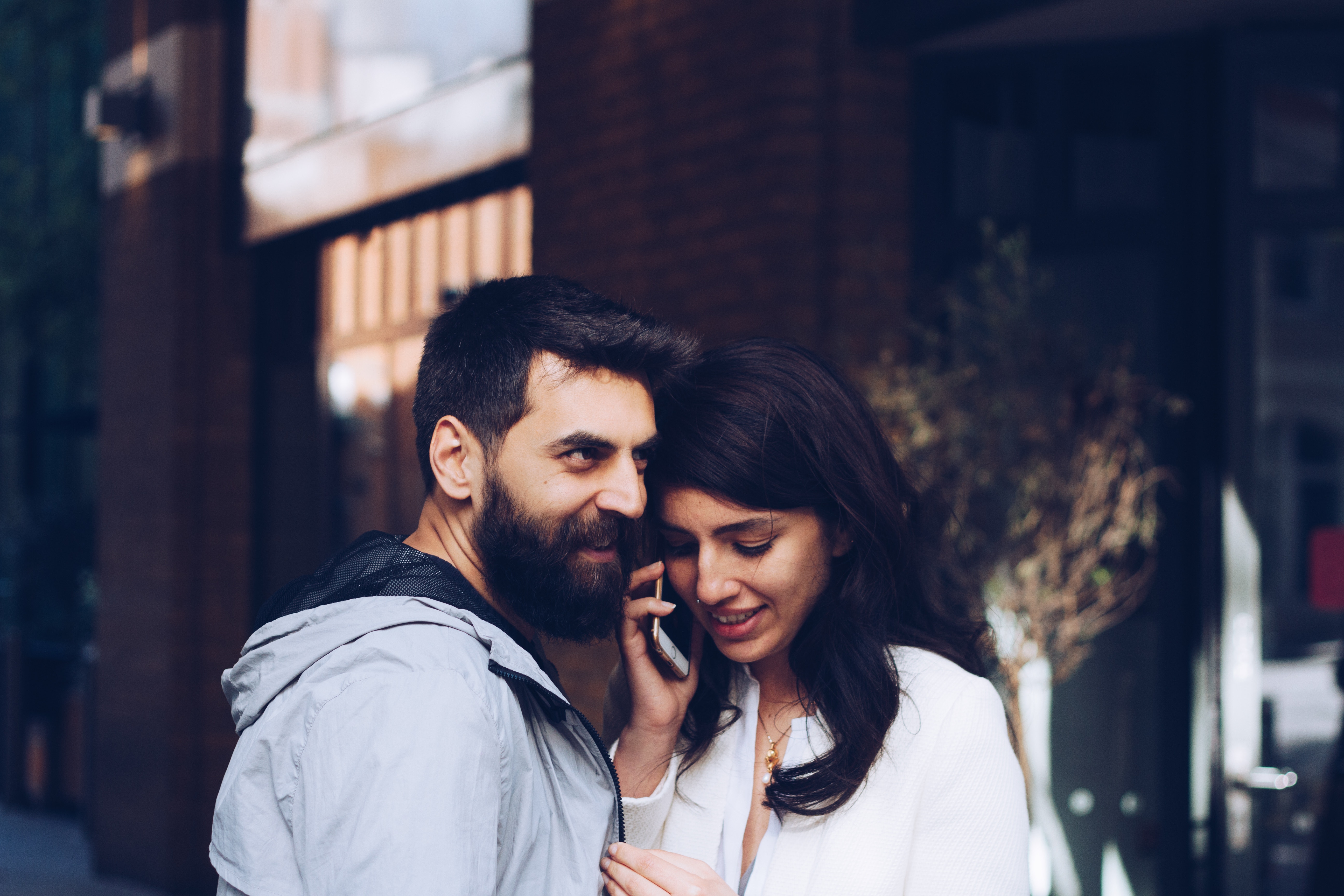Two women share their take on anxiety and how it affects their relationships.
Molly: What do we mean when we say we’re feeling anxious? By definition, anxiety is “a feeling of worry, nervousness, or unease, typically about an imminent event or something with an uncertain outcome.” But in today’s society, the word has taken on a number of different connotations. What was originally simply used to express worry and apprehension has in some senses become almost weaponized. We feel as though we can’t talk about anxiety without an official diagnosis because others have it worse, but even if we do, we often keep quiet to avoid the stigma. It’s as though our emotions and mental health are discussed like periods in the eighth grade- quietly, and with a little embarrassment. Which is ridiculous. At the end of the day, like any emotion, we all experience the feeling of anxiety differently and to varying degrees. We all struggle in our own ways.
Corri: This bleeds into relationships often times in a very negative way. Check-in texts disguised as “Hey, just thinking of you” become annoying, double-checking plans turn into a nuisance, and questions about what, why, where, and whom you’re doing things with is decidedly a “trust issue” rather than a symptom of anxiety. To a partner who doesn’t suffer from anxiety, these seem neurotic, unnecessary, and become increasingly overbearing and obnoxious to deal with. But to a partner who suffers from anxiety, these are behaviors with very necessary, valid reasonings behind them. It’s not that we want to be in your business 24/7, it’s that we need to. I for one despise the fact that I require so much reassurance and validation within a relationship, but as a girl with Generalized Anxiety Disorder, that’s just something I and any partners I have, have to deal with.
Molly: Even as someone without an anxiety disorder, nonspecific “what ifs” often make me feel like a crazy person. I take small things said in passing, and go over them in my head until I’m sure I’ve done something to upset the other person. Vulnerability is something I struggle with- I don’t enjoy the feeling of being completely unguarded; so I’ve never really been a “talk about it” kind of girl. However in college, I felt so trapped in my own mind that I did try therapy – and it was awful. The therapist and I sat there staring at each other in relative silence for 30 minutes and I never went back. Because of this, when I do find myself struggling with issues that stem from feeling anxious I try to avoid discussing them because I don’t want to seem as if I’m making nothing into something (even though that usually happens anyways). It doesn’t need an official diagnosis to still have a negative impact. It’s hard to explain that my trust issues don’t necessarily stem from something you’ve done, but from me constantly anticipating the worst.
Corri: Not having an official diagnosis but still struggling with these anxious thoughts is still completely valid. What makes this situation unbearable at times is the worry that your partner—or any partner—just might never understand. I often stay up at night and fret over the fact that this anxiety makes me treat my partners horribly. I constantly have this weight on my shoulder from wondering whether or not my significant other thinks I’m just this selfish, spacey, distrusting person. As accurate as pieces such as this are, it is so incredibly difficult to understand this mindset unless you’ve gone through it yourself. For instance, any “normal” person can brush off the fact that they are not constantly talking to their partner. People like myself on the other hand constantly wonder, “What did I do wrong? Do they still love me? Are we okay?” And unless you’ve trained yourself to curb these thoughts, they will likely consume you until you get into contact with your partner again.
Molly: It’s always tough to wonder if your own struggles are impacting the way that you’re treating your partner – and if the things you perceive as your weaknesses will one day cause them to look for something else. However I think an important first step in stopping anxiety from bleeding negativity into our relationships is to learn how to talk about it. If you can write about how you are feeling and why – it will become less daunting to express where your behaviors come from. How can we expect ourselves to effectively communicate things to others that we aren’t quite sure of ourselves? If we can bring ourselves to a place where feelings of anxiety aren’t something to be hidden or ashamed of, we can begin to work through them and how they are impacting our relationships. It doesn’t have to be a grand essay to be effective – even just jotting down bullet points of how feelings of anxiety affect you and your relationship is a good starting place.
Corri: For me, medication has done wonders to ease my conscience in relationships, but I still have a couple of triggers.
- Anxiety makes me need constant communication, otherwise my brain does an excellent job of convincing me you’re dead or injured. If you don’t text good morning and goodnight, don’t reply in a quick manner, or leave me on “read,” I automatically assume something is wrong.
- Double and triple checking things is the only way to keep me calm. I know we made plans, and I know that you haven’t done or said anything to make me think those plans are cancelled, but I have to double check, otherwise my brain goes into overdrive.
- I’m not necessarily a jealous person (though I do struggle with the feeling from time to time), but if I see or hear about you getting along with, joking with, or talking with someone else, my brain automatically assumes the worst. Not even that my partner might be cheating on me, but maybe that I’m inadequate, or not providing something good enough for them. I need affirmation, and often. Please tell me you love me, you care about me, etc. frequently. I know my partner cares, but unless I hear it almost constantly, anxiety starts to make me doubt their feelings and my worth. I start to wonder if I’m bringing enough to the table, or if I’ve outlived my usefulness in the relationship.
- None of this means I don’t trust my partner, because I do. Anxiety is just like a voice in my head—constantly whispering doubts and fears into my ear, so much so that I just have to know if whatever it is saying is true. We could be together for four or five years, and this would still be an issue.
Molly: Exercise and talks with friends always help, but there are still feelings I find myself fixating on on a fairly regular basis that cause me to start distancing myself from my partner without even realizing it.
- Anxiety can make it difficult for me to feel close with other people. When you’re constantly anticipating the worst and listening to the little voice in your head telling you they’re really not feeling it, it’s so hard to then open up to someone (because you’re already expecting them to hurt you). This can become even more challenging further into a relationship, as people inevitably make mistakes. Even if it is something from ages ago that I have already forgiven, it doesn’t mean I’ve forgotten. It might not be something I hold against them, but a part of me will always worry that something similar might happen again.
- It’s hard for me to deal with change. Ever since I was little, I had to know what the plan was – where we were going, when, for how long, what we would be doing there, who we would be doing it with, etc. I’ve gotten better as I’ve gotten older, and most of the time I can go with the flow – but that means I feel like a lunatic when I have a meltdown over a last minute change in plans.
- Everything will be fine, and then the lovely little thought of “But what if they change their mind? What if they’re bored?” pops into my mind even though my partner has given me no indication of that whatsoever.
- However this all said, I’ve found that my anxiety doesn’t have to be a bad thing to fight against – if you embrace it it can work for you. My stress constantly manifests itself in my competitive nature, and I’m never as productive as I am when I’m channeling nervous energy.
Corri: As you can see, anxiety has the capability to put strain on both parties in a relationship. It’s a condition that certainly makes situations difficult, but we are not any less worthy of love. Just like anger or sadness, anxiety can be eased, or even fixed. With the proper mindset, a patient partner, and a lot of trial and error—anxiety doesn’t need to be a make or break thing in a relationship. It takes some work, sure, but it’s not an end-all-be-all that means you’ll be alone for the rest of your life.
Share this:
- Click to share on Tumblr (Opens in new window)
- Click to share on Twitter (Opens in new window)
- Click to share on Facebook (Opens in new window)
- Click to share on Reddit (Opens in new window)
- Click to email a link to a friend (Opens in new window)
- Click to print (Opens in new window)
- Click to share on Pocket (Opens in new window)
- Click to share on LinkedIn (Opens in new window)
- Click to share on Pinterest (Opens in new window)










